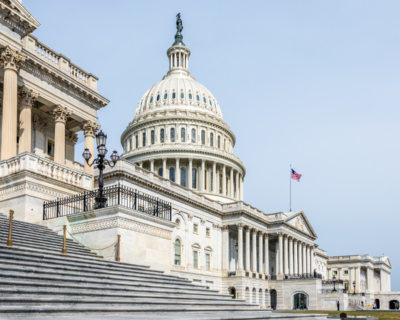
Study Alleges Majority of Legacy Lawsuits Fail to Produce Hard Evidence of Contamination
Landowners attorney, Sierra Club claim government agency favors industry
 Are the attorneys and plaintiffs who file lawsuits built around oilfield contamination allegations genuinely concerned about environmental damage? Or, are they instead motivated by a loophole in the law that allows for financial awards to be detached from cleanup efforts?
Are the attorneys and plaintiffs who file lawsuits built around oilfield contamination allegations genuinely concerned about environmental damage? Or, are they instead motivated by a loophole in the law that allows for financial awards to be detached from cleanup efforts?
These questions will be explored over the next few weeks in the Louisiana legislature where over a dozen bills have been filed that would alter the terms and conditions currently set for “legacy lawsuits.” Plaintiff lawyers and their clients who have ownership over property previously leased out for conventional onshore drilling purposes have been the driving force behind suits that now impact about 60 percent of the state’s top crude oil producers, according to the Louisiana Oil and Gas Association (LOGA).
In many instances, the alleged contamination reaches back for several decades or even a century, and the ownership over the “legacy site” has changed hands several times. While in some instances legitimate environmental conditions need to be remediated, new evidence has emerged that suggests many of the suits are unrelated to genuine instances of wrongdoing and environmental damage. The Department of Natural Resources (DNR), for instance, reports that 78 percent of all the legacy cases filed have failed to present any evidence of contamination according to state standards.
“There is mounting evidence that the vast majority of these cases may not be legitimate,” Melissa Landry, executive director of Louisiana Lawsuit Abuse Watch (LLAW) commented. “We are talking about over three-fourths of the cases that are being filed right now. This statistic begs the question, if there is no legitimate evidence being presented of actual damage, then why are so many cases being filed? There is good reason to believe this is more about money, than it is about the environment.”
The American Tort Reform Association (ATRA) has released a video showing a legacy lawsuit lawyer consultant who describes how natural occurrences can be misconstrued as wrongdoing to secure large settlements. The consultant outlines an 11 step plan that can be used to pin the blame for environmental disturbances on oil and gas companies, even if they are not responsible.
“Salt domes impact the surface and near the surface themselves, just a natural occurrence,” the consultant explains in the video. “…But when I find these things, maybe I’m going to contend that the oil companies did it. It’s tough to name God as a defendant. The oil companies did it.”
Last year, Rep. Page Cortez (R-Lafayette) submitted a bill that would have shifted the primary jurisdiction for legacy lawsuits away from local courts over to the 19th Judicial District Court and the Department of Natural Resources. The idea was for state officials knowledgeable about the issues to have greater say over the claims process and any cleanup efforts. Critics charged that Cortez’s bill was overly protective of the oil and gas industry, while supporters viewed it as a vital policy change that would accelerate cleanups and lower costs. The House Natural Resources Committee turned away Cortez’s bill.
In the current session, Rep. Neil Abramson (D-New Orleans), who chairs the Civil Law and Procedure Committee, has submitted a bill (HB 618) that would help ensure that damage claims are more in line with what the state environmental experts believe is needed to address any environmental damage. Sen. J.P. Morrell (D-New Orleans) and Sen. Robert Adley (R-Benton) are sponsoring similar legislation.
“These bills allow a party to limit an admission of liability to responsibility for implementing the most feasible plan [for cleanup],” Gifford Briggs, vice-president of the Louisiana Oil and Gas Association (LOGA), explained. “This would greatly speed up the remediation process.”
LOGA is very much opposed to an alternative set of legislation sponsored by Rep. Jack Montoucet (D-Crowley), especially HB 853, Briggs added.
“House Bill 853 is best described as the Louisiana oil field job killing act,” he said. “From our perspective, it is the worst bill ever filed.”
The Pelican Institute contacted Rep. Montoucet’s office seeking comment but did not receive a response.
Briggs is hopeful a compromise can be reached that balances legitimate environmental concerns with economic realities.
“The political terrain has not changed much since last year and we expect a vigorous debate,” he said. “But we do see a real opportunity here to implement reforms that would result in effective cleanup efforts and greater cost savings.”
The opening for excessive litigation came in 2003, Landry explained, when the Louisiana Supreme Court ruled in Corbella v. Iowa that the money awarded in environmental lawsuits did not necessarily have to be spent on cleanup efforts. In 2006, state lawmakers sought to re-prioritize environmental remediation over lawsuit profit motives with Act 312. The law was crafted in an effort to ensure that state experts work with landowners to develop a remediation plan and to be certain that the financial resources distributed by the responsible parties are spent on environmental repairs and compensation for actual economic damages.
Unfortunately, it is possible to sidestep Act 312 in court, Landry said. In some instances, the plaintiff attorneys have been able to persuade judges that the law is not applicable to their claim, she explained.
Haywood Martin, who chairs the Louisiana Chapter of the Sierra Club, also expressed misgivings toward the Corbella v. Iowa ruling and favors policy changes that would prioritize environmental clean up.
“The Sierra Club would like to see some requirement that funds for damages go towards remediation of the actual environmental damage,” he said. “But, at the same time, we would not want to see any limit on the ability of private landowners to sue for damages to their property.”
For the moment, the Sierra Club has declined to take an official on any of the bills that have been introduced.
“We are very early in the legislative session and a lot could change,” Martin continued. “It’s important to know that what the oil industry has been advocating for is to have negotiations over the damages from oil activities overseen by the Department of Natural Resources (DNR), which has been very favorable to the oil industry. Their mission [the DNR] is to help the oil industry to extract and produce revenues, so there’s an obvious conflict there.”
Attorney Jimmy Faircloth, who represents the Louisiana Landowners Association (LLA), concurs. Industry officials believe they are more likely to secure a favorable settlement if DNR agents can testify on their behalf in court, he said. Faircloth and his landowner clients back legislation from Sen. Gerald Long (R-Natchitoches) (SB 528) that would rewrite Act 312.
“Here we give the oil and gas industry everything it has asked for in its propaganda pieces,” Faircloth said. “But it [Long’s bill] does not accomplish what industry officials are really after. They want to use a state agency as a screening tool, and take that agency to trial. This is not about reducing frivolous lawsuits.”
Faircloth also challenged the idea that most of the environmental allegations lacked tangible evidence.
“The Department of Natural Resources (DNR) did not find that most of these claims were baseless,” Faircloth said. “This is a perfect example of how industry misrepresents what the agency is actually saying, and why they would like to drag this agency with them into court. DNR only said that it did not have any data that demonstrates most of the cases have environmental contamination because it did not have the necessary documents.”
A new report from the Louisiana State University (LSU) Center for Energy Studies concludes that legacy lawsuits have resulted in diminished drilling activity. In northern Louisiana, the study estimates that drilling activity has been reduced by about 952 wells over an eight period. Southern Louisiana experienced a drilling reduction of about 377 wells during this same time period. The LSU study also shows that Louisiana residents have lost out on over 30,000 jobs and $1.5 billion in wages as result of reduced drilling.
Kevin Mooney is the Capitol Bureau Reporter with the Pelican Institute for Public Policy. He can be reached at kmooney@pelicanpolicy.org and followed on Twitter.




